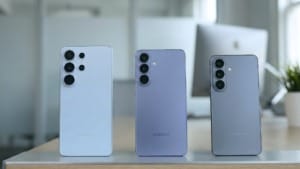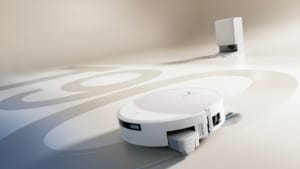Sodium-ion power banks: A new era of portable charging
Elecom’s Na Plus power bank debuts with sodium-ion technology, offering a greener, longer-lasting alternative to lithium-ion batteries.

A new portable power bank using sodium-ion battery technology has hit the market, offering an eco-friendly alternative to traditional lithium-ion chargers. Accessory maker Elecom has introduced the Na Plus, a 9,000mAh power bank that boasts a longer lifespan, better performance in extreme temperatures, and reduced environmental impact.
Unlike lithium-ion batteries, which rely on resource-intensive materials like cobalt and nickel, sodium-ion batteries use sodium, a much more abundant element. This makes them easier to produce and less harmful to the environment. Elecom claims the Na Plus can endure nearly 5,000 charge cycles—meaning even with daily use, it should last around 13 years.
Performance and pricing details
Although sodium-ion technology is still in its early stages, the Na Plus demonstrates its potential. It features a USB-C port with a maximum output of 45W and a USB-A port offering up to 18W. A set of LED indicators shows the remaining battery life, which takes approximately two hours to charge fully.
However, this innovative technology comes at a premium. While you can find a basic 10,000mAh lithium-ion power bank from brands like Anker for under US$20, the Na Plus has launched in Japan at 9,980 yen (around US$67). It is currently available in black and light grey, with no word yet on an international release.
The future of sodium-ion batteries
Sodium-ion batteries are a promising alternative, especially for applications where size and weight are not the main concern. The Na Plus, for example, is noticeably bulkier than its lithium-ion counterparts. A 10,000mAh lithium-ion power bank typically weighs around 213 grams, whereas the 9,000mAh Na Plus weighs 350 grams. This difference in energy density means sodium-ion batteries must be larger to store the same amount of power.
Despite this, the technology offers some clear advantages. The Na Plus can function in temperatures ranging from -30 to 122 degrees Fahrenheit, making it ideal for extreme conditions. Additionally, sodium-ion batteries pose a lower risk of overheating and thermal runaway, reducing fire hazards.
While the Na Plus may not be the most powerful or compact option available, its arrival signals an exciting shift in battery technology. As production scales up and supply chains improve, prices could drop, making sodium-ion power banks more accessible to consumers worldwide. For now, the Na Plus is a glimpse into the future of sustainable energy storage.
















